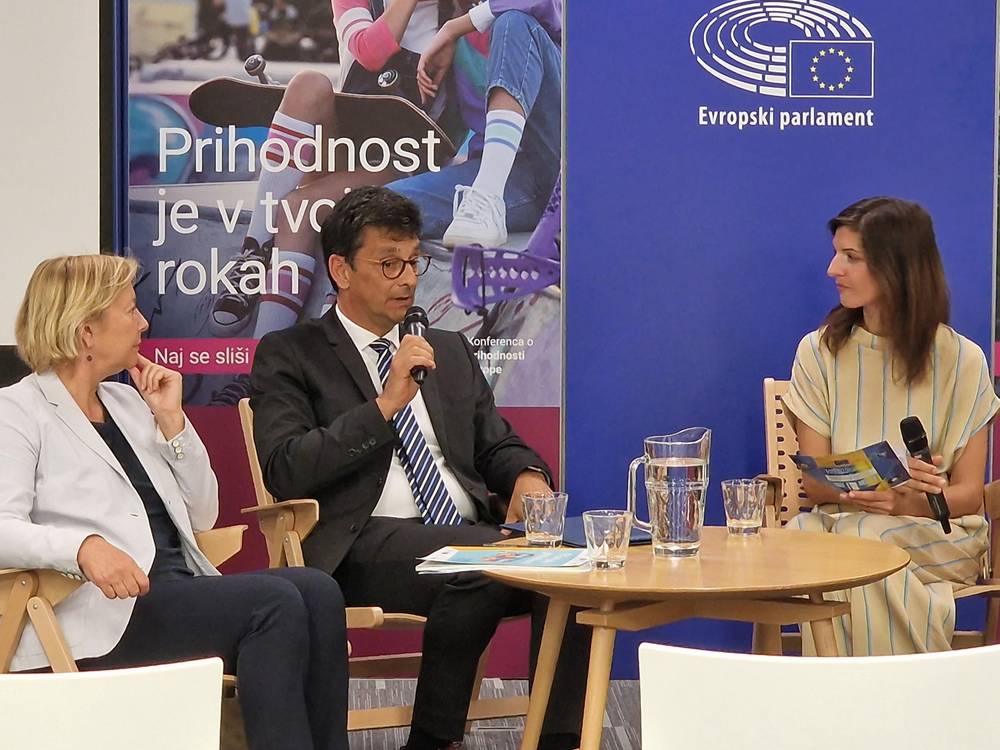On 2 June 2022, the Ombudsman participated at the round table in the framework of the first national conference of the European Citizens, Equality, Rights and Values (CERV) programme, organised by the PiNA association.
At the round table titled CERV and us, they discussed human rights and values in Slovenia and in the EU, on active citizenship, and on the importance of culture in the development and understanding of human rights, equality and tolerance. And also on the importance of civil society organisations and European programmes such as the CERV for the development of an inclusive democratic society which is based on values such as equality, rights and participation.
Ombudsman Peter Svetina emphasised, among other things, the importance of safeguarding human rights. “In some way, I am happy that the pandemic has initiated the discussion about this, that my rights end where your rights begin. A debate was initiated on how to restrict rights, which was practically the silver thread of the pandemic: with an appropriate legal basis, in proportion and for a definite period,” he noted.
He is happy that, based on the 2019 survey conducted by the Fundamental Rights Agency (FRA), which included 27 EU member states, North Macedonia and the United Kingdom, 96 percent of people in Slovenia had already heard of the National Human Rights Institution in Slovenia. “This is also probably due to the long-standing presence of the Ombudsman, and it is important to connect various stakeholders and even field work. Even though they have already heard of the Ombudsman, many still do not know what its powers are, which is why we are spreading awareness in cooperation with municipalities, and placing the Ombudsman’s nooks,” said Ombudsman Svetina.
He noted that he expects the realisation of the Ombudsman’s recommendations because this is a fundamental element of a democratic structure of society, and the Ombudsman contributes to this with its supervisory functions and well-intended recommendations for improvement.

![[Translate to English:] Varuh govori na okrogli mizi](/fileadmin/_processed_/e/0/csm_CERV_okrogla_miza_16a14ab092.jpg)
